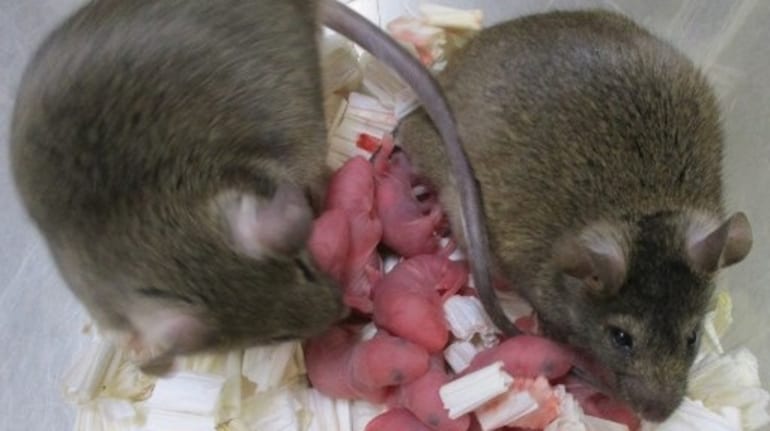



Scientists in Japan claim they have created mice with two fathers in a breakthrough that could someday be replicated in humans as treatments for severe forms of infertility. It also raises the prospect of same-sex couples being able to have a biological child together in the future.
“This is the first case of making robust mammal oocytes from male cells,” Katsuhiko Hayashi, who led the work at Kyushu University in Japan, told The Guardian. He is also internationally renowned as a pioneer of lab-grown eggs and sperm.
The baby mice appeared healthy, had a normal lifespan, and went on to reproduce as adults. “They look okay, they look to be growing normally, they become fathers,” Hayashi said.
He and colleagues are now attempting to replicate the creation of lab-grown eggs using human cells. Hayashi also predicted that it would be technically possible to create a viable human egg from a male skin cell within a decade.
Read more: Rats ate 500 kg marijuana, claim UP cops: 'They have no fear'
“Purely in terms of technology, it will be possible (in humans) even in 10 years,” he told the publication, adding that he would be in favour of the technology being used to allow two men to have a baby if it were shown to be safe. “I don’t know whether they’ll be available for reproduction. That is not a question just for the scientific programme, but also for (society).”
The procedure could also be applied to treat severe forms of infertility, including women with Turner’s syndrome, in whom one copy of the X chromosome is missing or partly missing, Hayashi said, adding that this application was the primary motivation for the research.
Read more: On camera, giant rat bites 8-year-old at McDonald’s Hyderabad: ‘Size of small puppy’
Discover the latest Business News, Sensex, and Nifty updates. Obtain Personal Finance insights, tax queries, and expert opinions on Moneycontrol or download the Moneycontrol App to stay updated!
Find the best of Al News in one place, specially curated for you every weekend.
Stay on top of the latest tech trends and biggest startup news.